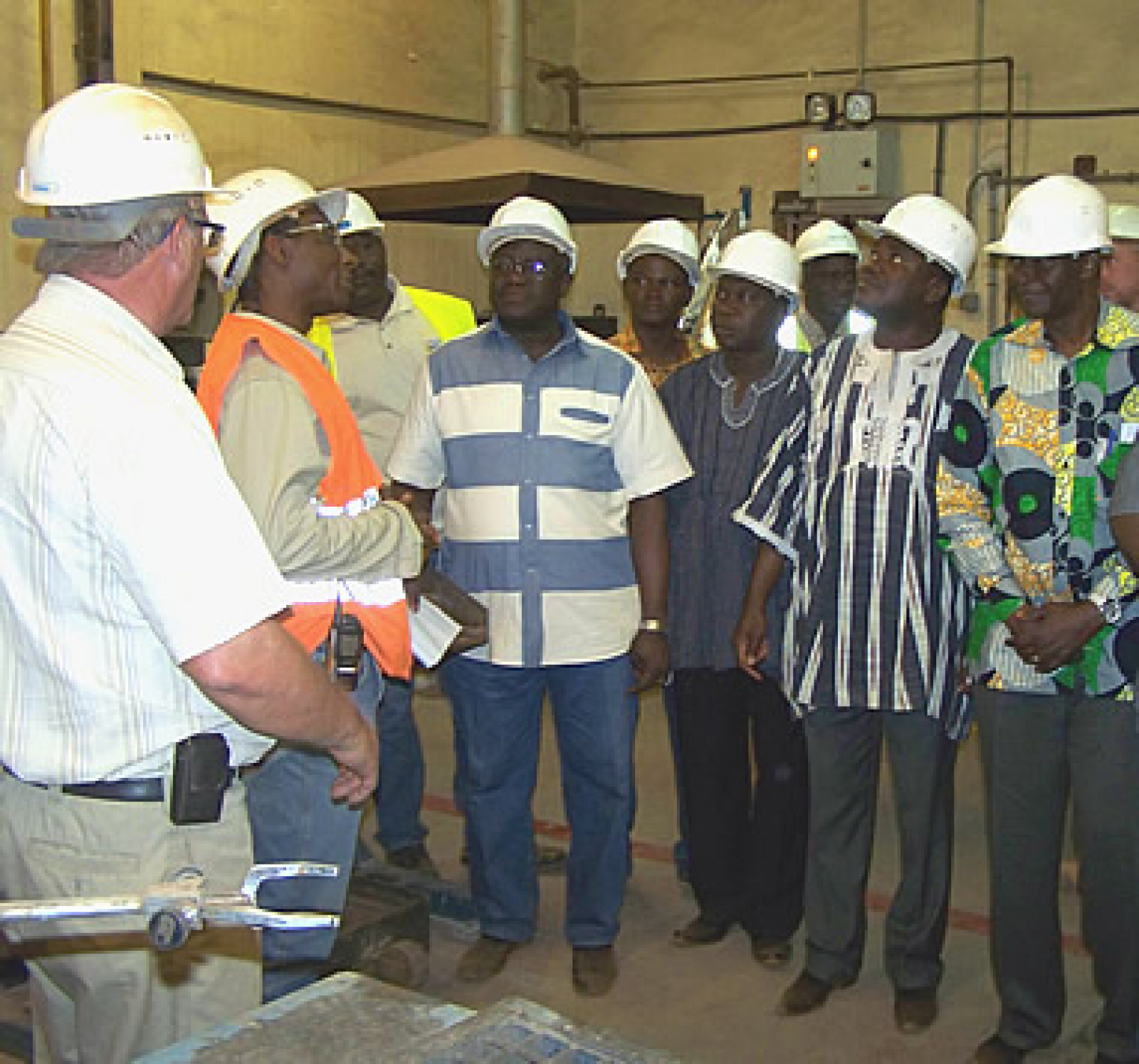
SHARE
Burkina Faso, one of the world’s poorest countries, has turned to gold exports as a way to boost its economy. It doubled gold production from 2009 to 2010 and launched two more mining projects late last year. These developments have created new jobs and other financial benefits, but have also raised some of the concerns that have plagued mining operations in other countries, such as environmental degradation or exploitation of workers.
As mining becomes central to the Burkinabe economy, oversight by the nation’s parliament is a crucial tool in avoiding these problems. To that end, a delegation of members of parliament (MPs) recently visited the Mana gold mine, one of seven industrial mines in Burkina Faso, located 125 miles west of the capital, Ouagadougou. The visiting MPs were members of the Network of Burkinabe Parliamentarians in the Fight Against Corruption (Burkindi), an informal, multiparty network of lawmakers that has been working since 2008 to prevent corruption. They were accompanied by representatives from government ministries and journalists. The site visit was organized by NDI.
The delegation visited the open-pit mine, as well as an exploration site, where miners are searching for new gold deposits; the mine laboratory, which tests samples to determine the quality of the gold; and the site where mine waste, such as used water and gold residue, is dumped. The mine director said that measures are taken to preserve the environment, including regular tests of the wastewater and the local water supply to limit pollution and monitor contamination. MPs interviewed mine officials about the impact of the open-air dump on the health of citizens and discussed concerns about the social impact of the mine, including its ability to create jobs for young people.
The delegation also met with citizens of Bana, the surrounding town. Residents hailed the jobs created by the mine, which has employed 564 people — 167 of them local — since its opening in 2008. But they also shared grievances, saying that the mine is not hiring as many young people as residents had hoped. Citizens also said that since the mine was built on what had been viable farmland, the nearby village of Somona was suffering from a shortage of arable land and needed the mine to create more jobs to help village residents. MPs took note of these complaints and will investigate them further.
The coordinator of Burkindi, Maurice Dieudonné Bonanet, said the MPs will provide recommendations to the mining company and the government based on what they learned from the site visit. The MPs will continue to monitor the situation as the mining company works to address the grievances voiced by citizens, according to Alfred Sanou, an MP from the ruling party in Houet province.
NDI has worked with governments throughout Africa since 2008 to improve transparency and government oversight of extractive industries. In 2008 the Institute published Transparency and Accountability in Africa’s Extractive Industries: The Role of the Legislature and followed by The Extractive Industries Transparency Initiative Guide for Legislators: How to Support and Strengthen Resource Transparency in 2009 to help African lawmakers as they work to curb corruption and increase transparency in the mining industry.
Related:
- NDI supports East African MPs' efforts to improve mining sector oversight»
- African legislatures work to promote extractive industry accountability»
- Leadership academy prepares young women for political careers in Burkina Faso»
Published May 8, 2012


